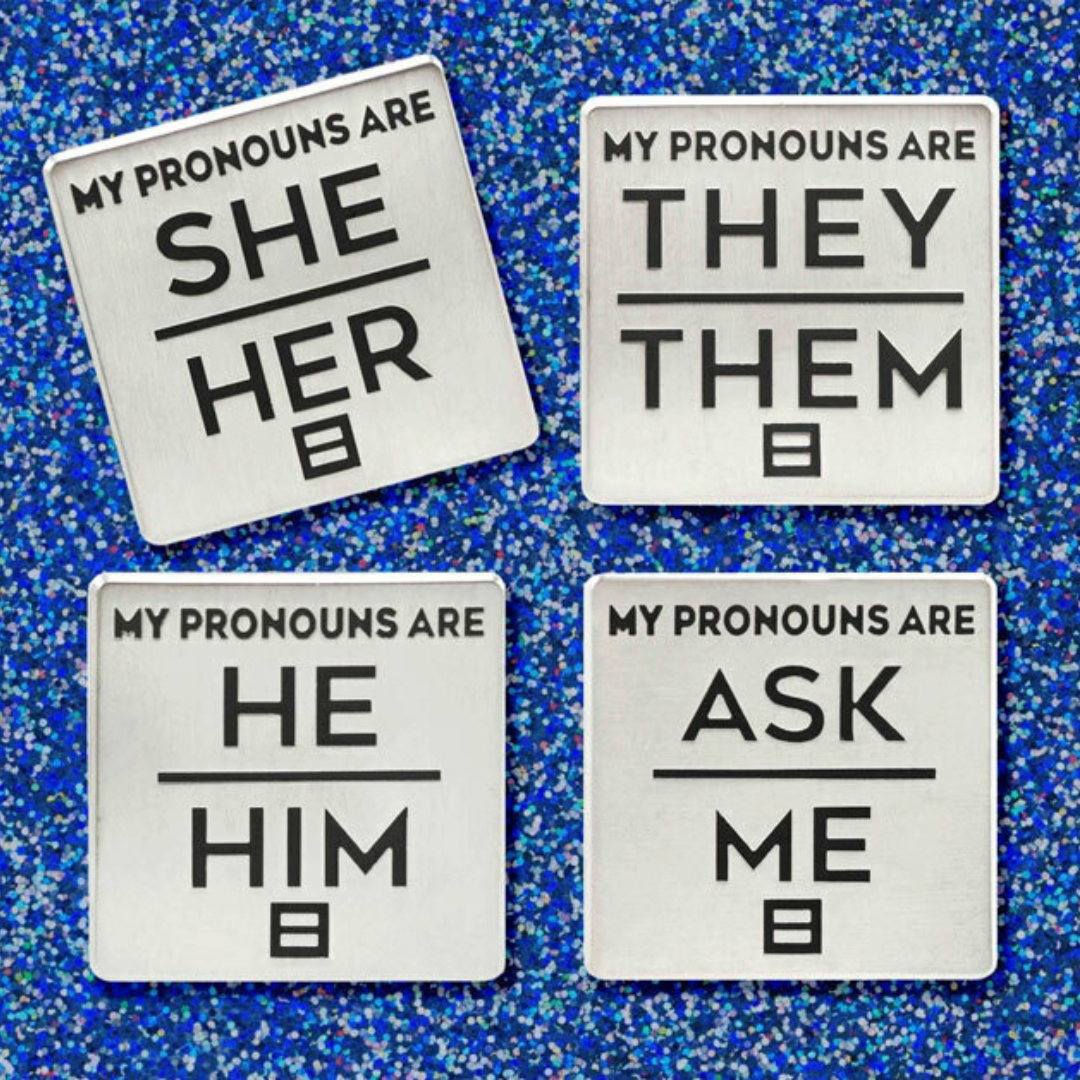
On the third Wednesday of October each year, the world celebrates International Pronouns Day — a relatively new but powerful observance dedicated to raising awareness about the importance of sharing, respecting, and normalizing personal pronouns. In 2025, it falls on October 15th.
At first glance, some might ask: Why devote a whole day to pronouns? But for LGBTQ+ communities — especially transgender, nonbinary, and gender-nonconforming people — pronouns are not just words. They are about dignity, safety, and belonging. They tell the world: See me as I am, not as you assume me to be.
International Pronouns Day is about creating a culture where everyone’s identities are respected, and where something as simple as a pronoun can affirm humanity.
What Are Pronouns and Why Do They Matter?
Pronouns are the little words we use to refer to someone without repeating their name — like she/her, he/him, they/them, or neopronouns like ze/zir. They’re so common that most people barely think about them. But when someone’s pronouns are ignored, dismissed, or mocked, the harm runs deep.
For trans and nonbinary people, misgendering can be more than an annoyance. It can be a daily reminder of exclusion, erasure, or even danger. Studies show that respecting pronouns reduces depression and suicide risk among trans youth. In other words: pronouns save lives.
The Origins of International Pronouns Day
International Pronouns Day began in 2018, sparked by grassroots activists and educators who saw the need for a global day of awareness. Its mission is simple yet transformative: to make respecting and sharing pronouns common practice.
The observance isn’t just about grammar — it’s about shifting culture. By dedicating a day to pronouns, we send a message: everyone deserves to be recognized on their own terms.
Breaking Down the Resistance
Some people push back against pronoun conversations, claiming they’re confusing or unnecessary. But let’s be honest: it’s not about confusion. It’s about discomfort with changing norms and acknowledging identities that society has historically erased.
Here’s the tea, sugar:
- We already adapt language constantly. Nobody bats an eye when new slang or tech terms enter the dictionary.
- We already use “they” as singular. (“Someone left their phone!”) That’s centuries old.
- Respecting pronouns is not about you. It’s about honoring another person’s humanity.
Resistance to pronouns often masks a deeper resistance to trans and nonbinary people existing openly. International Pronouns Day challenges that resistance head-on.
Pronouns and Intersectionality
Pronoun use doesn’t exist in a vacuum. Race, class, culture, and religion all shape how people experience gender and how pronouns are received.
For example:
- In some languages, gender-neutral pronouns don’t exist — activists and communities are inventing them.
- In cultures with strict gender norms, coming out with pronouns can be especially dangerous.
- For Black, Indigenous, and people of color, pronoun respect intersects with broader struggles against racism and invisibility.
International Pronouns Day is not about a one-size-fits-all solution. It’s about recognizing diversity and supporting communities in their own cultural contexts.
How to Observe International Pronouns Day
There are many ways to mark the day, whether you’re LGBTQ+ yourself or an ally:
- Share Your Pronouns
Add them to email signatures, Zoom screens, social media bios, and introductions. Modeling this normalizes it for everyone. - Respect and Use Others’ Pronouns
If you don’t know, ask politely. And if you make a mistake, correct yourself, apologize briefly, and move forward. - Educate Your Community
Host workshops, post infographics, or share stories about why pronouns matter. - Challenge Misconceptions
Push back gently but firmly when people dismiss pronoun conversations. - Support Trans and Nonbinary Voices
Amplify the voices of those most affected by pronoun erasure.
What to Do If You Slip Up
Nobody’s perfect. If you accidentally use the wrong pronoun, here’s what to do:
- Correct yourself quickly (“She—sorry, they went to the store”).
- Apologize once, without making it about your guilt.
- Move on and do better next time.
Over-apologizing shifts the focus onto your feelings, instead of the person who was misgendered. The best apology is consistent respect.
Creating Pronoun-Friendly Environments
Pronoun respect is about more than individuals. It’s about systems and spaces:
- Schools: Train teachers, update forms, and affirm trans and nonbinary students.
- Workplaces: Include pronouns in onboarding, HR systems, and company culture.
- Healthcare: Ensure providers ask and respect pronouns as part of affirming care.
- Community spaces: Make events, groups, and faith communities safe for people of all genders.
International Pronouns Day is the perfect moment for institutions to commit to real change.
The Heart of the Matter
At its core, pronoun respect is about something simple: letting people be who they are. It costs nothing, but it means everything.
For LGBTQ+ people — especially trans and nonbinary folks — having pronouns respected is a daily act of validation. For allies, sharing your pronouns is a way of saying, I see you, I respect you, I’m here with you.
This October 16th, let’s celebrate International Pronouns Day by affirming that everyone deserves recognition. Because when we honor pronouns, we honor people.
In Solidarity, Always
– Ryder
Discover more from Ryder Tombs
Subscribe to get the latest posts sent to your email.


